Radio-iodine Therapy Unit
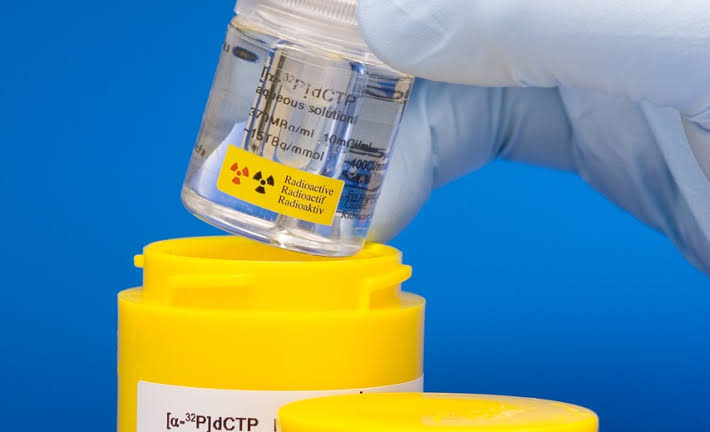
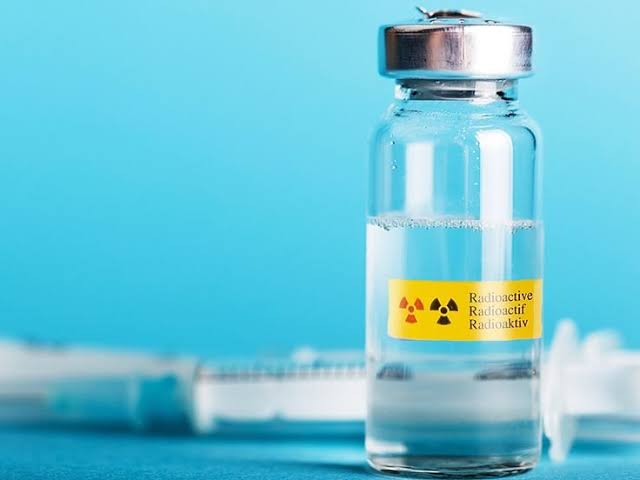
Radio-iodine Therapy Unit: For over 50 years now, radioiodine has remained one of the most useful radio-isotope for diagnosis and therapy in Nuclear Medicine. The wide application of radioiodine in the study of the thyroid gland and in the management of its disorders has been most rewarding. This treatment is safe, well tolerated and has successfully treated many cases of hyperthyroidism and thyroid cancer even after the tumor has spread.
| Investigations | Rate | Preparation |
|---|---|---|
| ACTH | 600 | Get Appointment |
| Beta Radiation of pterigium (post operative) | 500 | Get Appointment |
| Cabin Charge (per day) | 3000 | Get Appointment |
| Cabin Charge AC (per day) | 5000 | Get Appointment |
| P-32 treatment of polycythemia vera | 5000 | Get Appointment |
| Palliative treatment of bone metastases with P-32 or other usable radionuclide | 6000 | Get Appointment |
| Post-operative thyroid ablation with I-131 for differentiated thyroid Cancer (100 mCi) | 5000 | Get Appointment |
| Post-operative thyroid ablation with I-131 for differentiated thyroid Cancer (large dose >100 mCi) | 8000 | Get Appointment |
| Post-operative thyroid ablation with I-131 for differentiated thyroid Cancer 30-50 mCi | 2500 | Get Appointment |
| Radiation Synovectomy | 3000 | Get Appointment |
| Radioiodine treatment for Grave Disease, Toxic thyroid nodule And multinodular toxic goiter | 2000 | Get Appointment |
| Radionuclide treatment of arthritis | 1500 | Get Appointment |
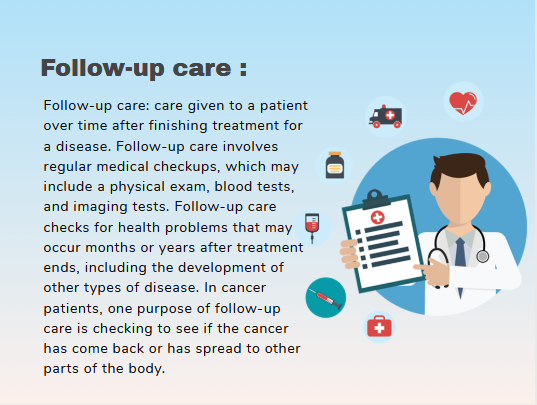
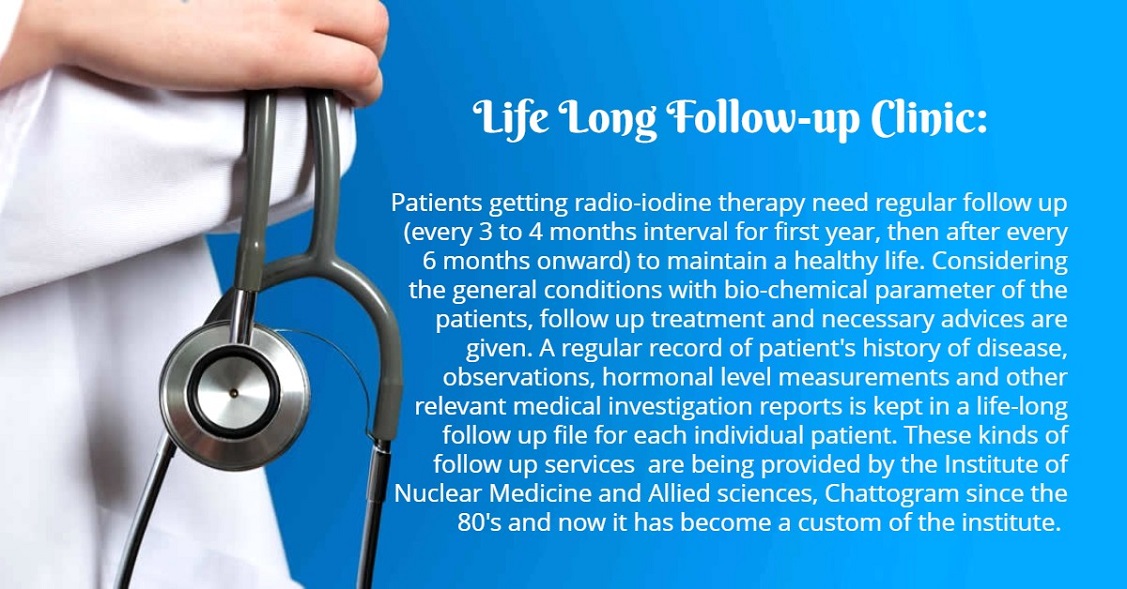 Preliminary List for Radio-iodine Therapy
Preliminary List for Radio-iodine Therapy
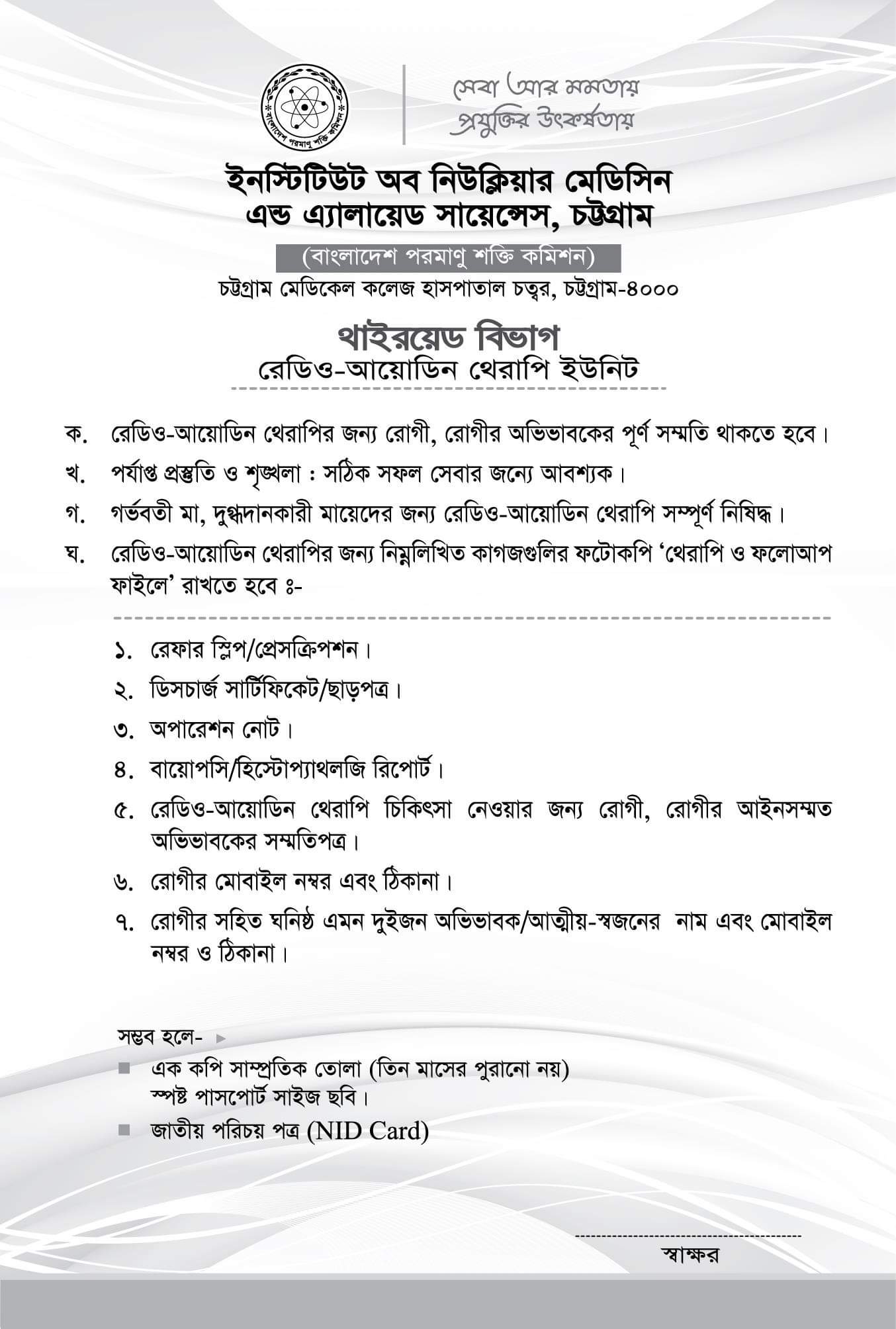 ⇛ Nuclear Medicine uses small amounts of radioactive material to diagnose, evaluate or treat a variety of diseases. These include many types of cancers, heart disease, gastrointestinal, endocrine or neurological disorders and other abnormalities. Because nuclear medicine exams can pinpoint molecular activity, they have the potential to identify disease in its earliest stages. They can also show whether a patient is responding to treatment.
⇛ Nuclear Medicine uses small amounts of radioactive material to diagnose, evaluate or treat a variety of diseases. These include many types of cancers, heart disease, gastrointestinal, endocrine or neurological disorders and other abnormalities. Because nuclear medicine exams can pinpoint molecular activity, they have the potential to identify disease in its earliest stages. They can also show whether a patient is responding to treatment.
⇛ Radioactive Iodine 1-131 therapy (also called Radioiodine 1-131: an isotope of iodine that emits radiation) is a treatment for an overactive thyroid, a condition called Hyperthyroidism. Hyperthyroidism can be caused by Graves' disease, in which the entire thyroid gland is overactive, or by nodules within the gland which are locally overactive in producing too much thyroid hormone.
⇛ Radioiodine therapy is a nuclear medicine treatment for an overactive thyroid, a condition called hyperthyroidism, and also may be used to treat thyroid cancer. When a small dose of radioactive iodine l-131 (an isotope of iodine that emits radiation) is swallowed, it is absorbed into the blood stream and concentrated by the thyroid gland, where it begins destroying the gland's cells.
ühow to prepare
ühow to take any necessary radiation safety precautions
üwhen to stop taking anti-thyroid medications
üinform your doctor if there's a possibility you are pregnant or if you are breast feeding nursing mother
üdiscuss any recent illnesses, medical or surgical conditions, allergies and medications you're taking.
